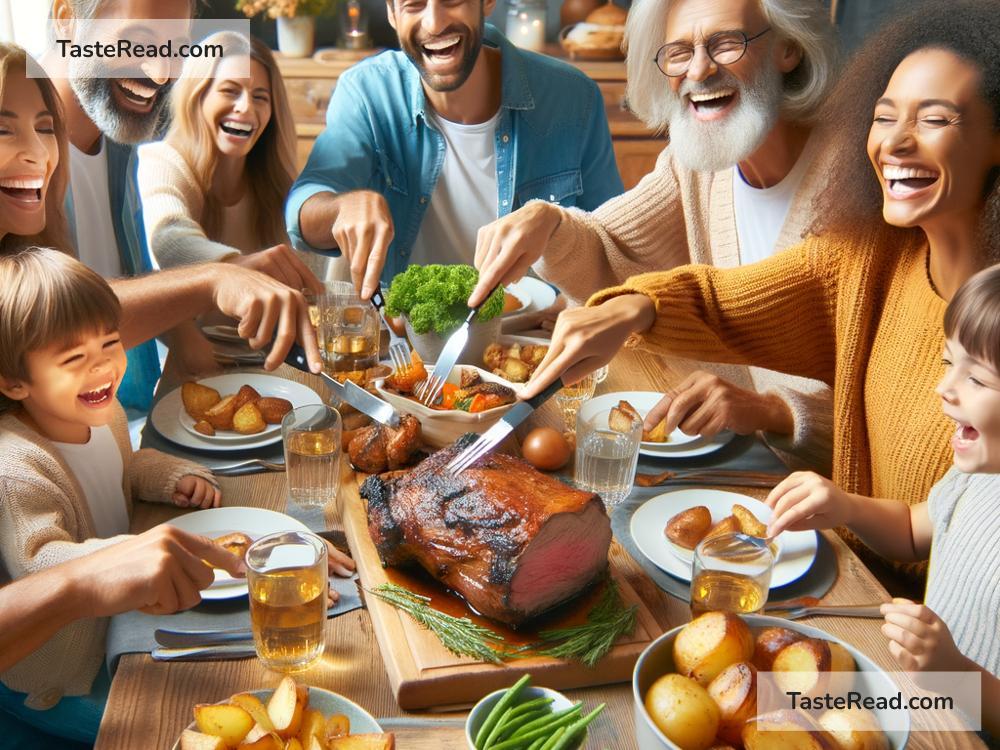Title: The Tale of Sunday Roast Beef: A Delicious English Tradition
As you sit down to a hearty plate of roast beef on a Sunday, have you ever wondered how this succulent dish became a cornerstone of British culinary tradition? The Sunday roast, particularly roast beef, holds a special place in the hearts and traditions of many English families, evoking memories of family gatherings, laughter, and, of course, delicious food. Let’s carve into the story of how the English roast beef became a Sunday tradition.
The tradition of roasting meat dates back to medieval England when the village serfs would serve their lords and ladies a feast of meat after a hard week’s work. It was a time when the spit roast over an open fire was the primary way of cooking large pieces of meat. Beef, being abundant in England due to the fertile lands suitable for cattle farming, naturally became the meat of choice for these feasts.
As time progressed, the tradition of the Sunday roast began to take a more structured form during the reign of King Henry VII in 1485. The king’s royal bodyguards, known as the Yeomen of the Guard, were fond of beef and would consume it every Sunday after attending church. Their love for this meat was so renowned that they were affectionately dubbed “Beefeaters,” a nickname that has stood the test of time and is still used today for the ceremonial guards at the Tower of London.
But why Sunday? Well, back in those days, Sunday was designated as the day of rest, as decreed by church law. This meant that no work could be done, including cooking. Families would thus prepare their meals before heading to church in the morning, and the slow-cooking nature of roasting beef fit perfectly into this routine. The beef would be left to cook slowly while the family was away, ready to be savored upon their return.
The association of roast beef with Sunday and England became so strong that in the 18th century, the French, admiring the English for their robust health, attributed it to their weekly consumption of roast beef, nicknaming the English “les Rosbifs.” This demonstrates how integral roast beef was not only to English cuisine but also to the national identity.
The Industrial Revolution of the 19th century further cemented the Sunday roast tradition. With the advent of the range oven, cooking became more manageable, and roasting meat was no longer confined to those with access to large open fires. This innovation democratized the roast, making it accessible to the middle and lower classes, and ensuring that the tradition could be shared by all levels of society.
Over time, the Sunday roast has evolved, with families adding their unique touches and side dishes. However, the mainstay, roast beef, remains at the heart of this culinary tradition. Accompanied by roast potatoes, Yorkshire pudding (a delicious oven-baked side that was originally served as a filler before the meat to reduce the amount of meat consumed), seasonal vegetables, and rich gravy, the Sunday roast is a celebration of English agriculture and cooking prowess.
Today, the Sunday roast holds a somewhat ceremonial place in English culture. It symbolizes family, tradition, and a time to gather and share stories over a delicious meal. In a world that’s ever-changing and fast-paced, this tradition provides a comforting sense of continuity and connection to the past.
Interestingly, while the tradition is inherently British, the concept of gathering and sharing a substantial meal with loved ones is universal. This perhaps explains why the Sunday roast, and particularly roast beef, has been embraced by people around the world, becoming a symbol of warmth, family, and togetherness.
In conclusion, the journey of the English roast beef from the medieval spit roasts to the modern-day oven roasts is a fascinating tale of tradition, innovation, and national identity. It reminds us of the power of food to bring people together, creating memories and traditions that span generations. So, the next time you sit down to enjoy a succulent roast beef on Sunday, remember, you’re partaking in a centuries-old tradition that’s as rich in history as it is in flavor. Bon Appétit!

